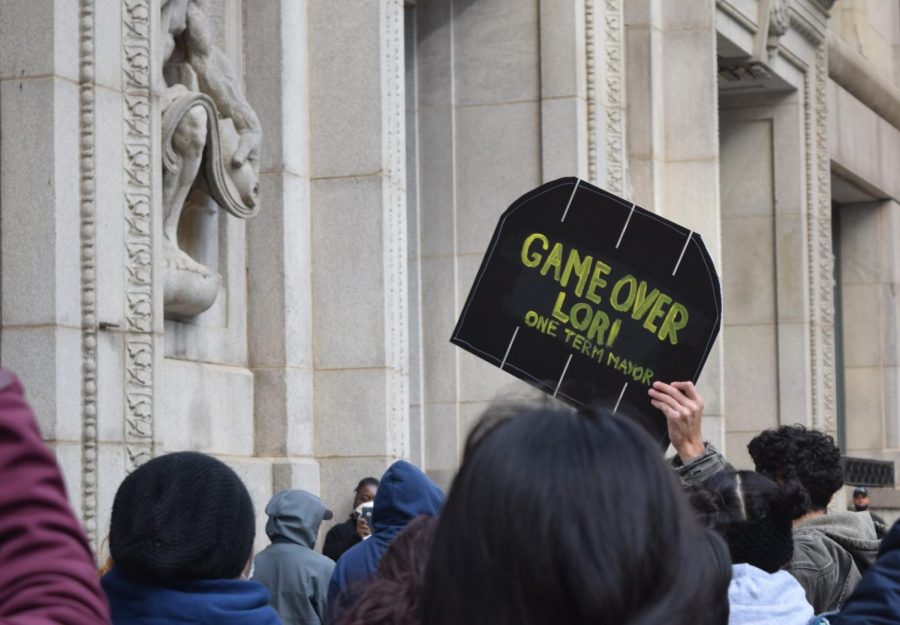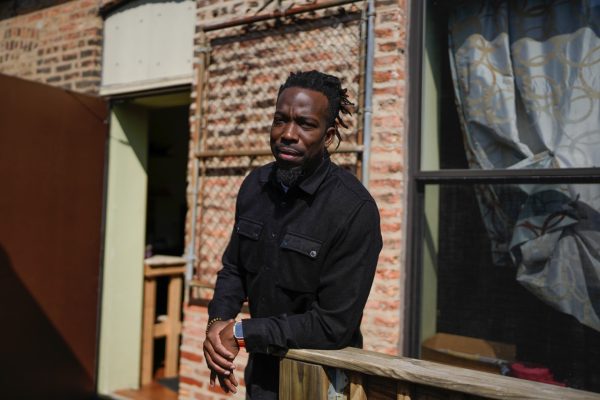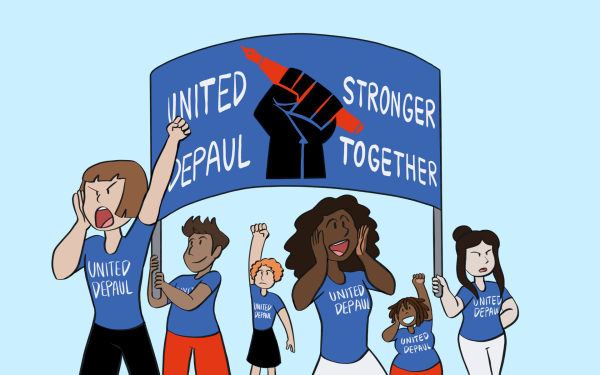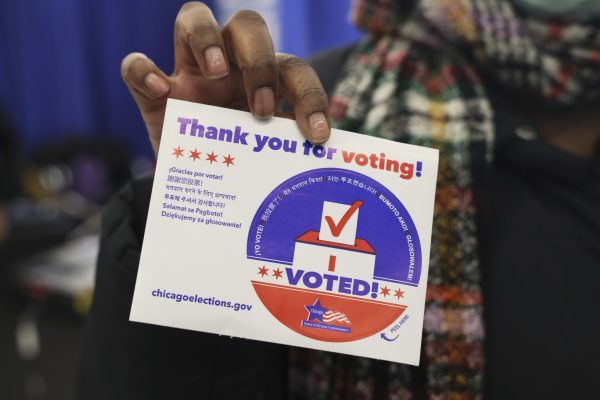Community organizations, progressive Alderpersons ‘haunt’ City Hall in Halloween-inspired protest morning of budget vote
Ahead of the City Council’s vote on Mayor Lori Lightfoot’s 2022 budget proposal, six black coffins flanked the corner of LaSalle and Randolph Wednesday morning.
Community organizers and Democratic Socialist Caucus alderpersons spoke out against the proposal’s usage of federal aid, increased police funding and lack of resources for public health and affordable housing at the Haunting City Hall protest. Hours later, the City Council approved the mayor’s 2022 budget with little debate.
Organizers gathered 50 people at the corner before leading a trumpet-led march around City Hall. Protesters briefly stopped traffic on Randolph to unfurl a banner reading “We deserve a real recovery budget,” and featuring slogans like “Stop ShotSpotter,” and “Housing for all.”
Speakers included alderpersons Rossana Rodriguez-Sanchez of the 33rd ward and Carlos Ramirez-Rosa of the 35th ward and community organizers from the Brighton Park Neighborhood Council, Southside Together Organizing for Power, Treatment Not Trauma, the Action Center on Race and the Economy and the Defund CPD Campaign.
Andrea Ortiz, organizing director of Brighton Park Neighborhood Council spoke of her experience growing up on Chicago’s southwest side.
“Since I was born in Chicago and raised in Chicago, I have been haunted by over 100 public school closings in my city,” Ortiz said.
Aldermen Rodriguez-Sanchez and Ramirez-Rosa, two of five members of the council’s progressive caucus, committed to vote no on the first ordinance up for consideration regarding the American Rescue Plan funds.
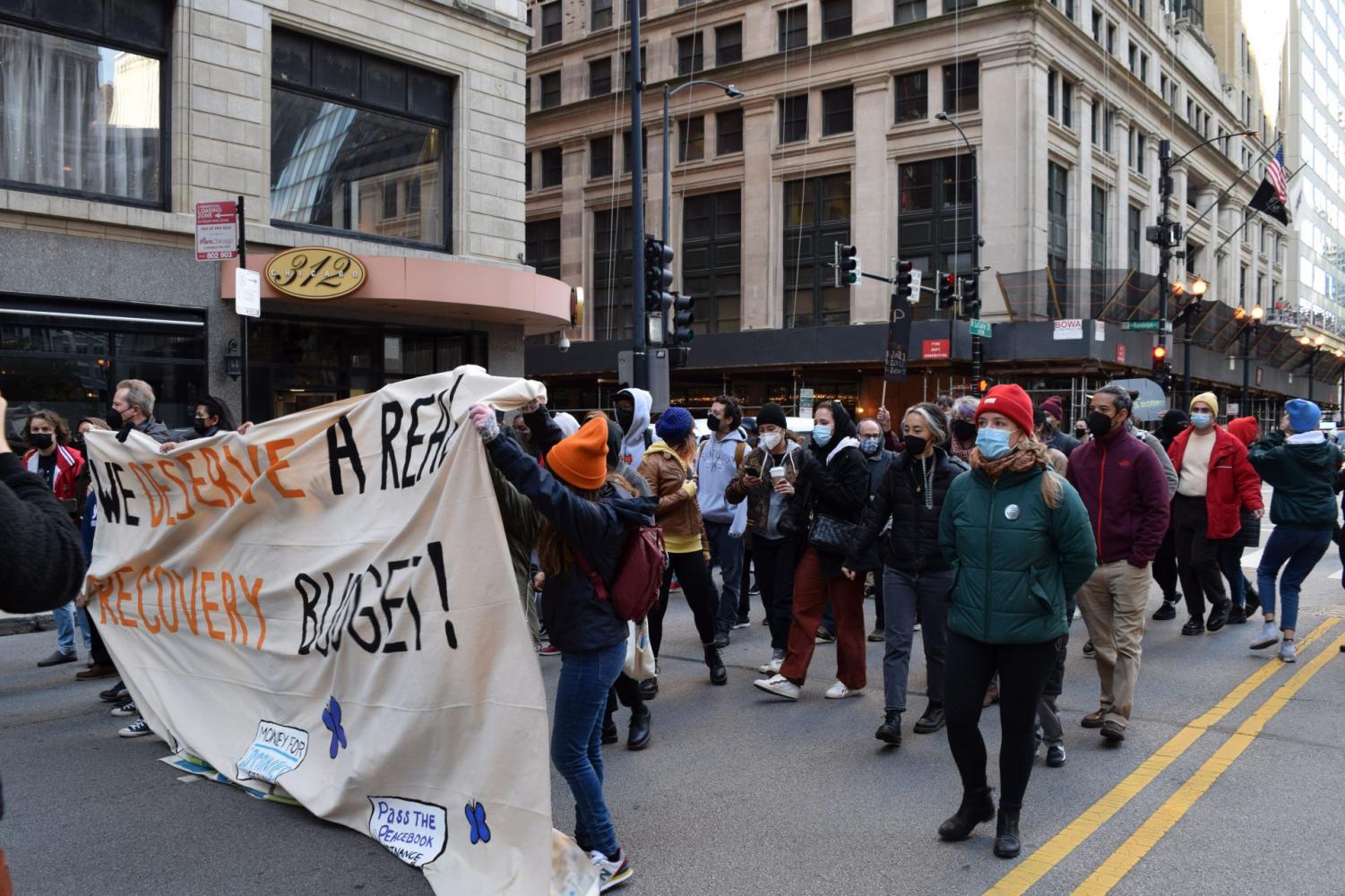
“The way in which this budget has been organized has been incredibly confusing for everybody — for aldermen, for the public,” Rodriguez said. “We have money coming from the American Rescue Plan funding, we have a lot of grants and a lot of gymnastics with money that has to be done in order to be able to have loopholes to use rescue money to pay that to pay the bank. And we are not okay with that.”
Lightfoot’s proposal to utilize federal funds to reconcile some of Chicago’s debt hinges on skirting federal conditions on the aid utilizing revenue replacement. Her proposal utilizes federal funds to prop up social service spending, thereby freeing up city revenue for debt payment.
“[American Rescue Plan funds] should go towards communities that are reeling from this crisis, not to Wall Street’s biggest bank or the cops. We need to ensure that our communities have the services we need. But we can only do that if we stop chasing other investors and take our money,” Saqib Bhatti, co-executive director of Action Center on Race and the Economy, said.
Speakers also pointed to inadequate funding for affordable housing and public mental health clinics as major oversights in the budget. Speakers emphasized the need for increased support of single room occupancy units in Chicago to ensure affordable housing for many of the city’s residents who might otherwise be homeless.
Police abolitionist organizers called for a reduction in funding for the Chicago Police Department, which saw a $200 million increase in funding to nearly $1.9 billion in the 2022 budget. Much of this increase can be attributed to a newly ratified contract with the Fraternal Order of Police (FOP) enacting retroactive raises and automatic raises each year, as well as a renewed contract with surveillance technology like ShotSpotter, a controversial gunshot detection system.
“In regards to the ShotSpotter contract, research continues to come out that ShotSpotter technology does not lessen gun crime in Chicago or anywhere else. No, it does not. So why are we committed to spending another $9 million on this technology?” said Alyx Goodwin, a member of the Defund CPD campaign.
Goodwin also touched on the rise in vacancies within the police force after historic waves of retirements and transfers from the department this year. Defund CPD has advocated in the past to cancel the ShotSpotter contract and layoff officers as a means of reallocating funds to other social services.
“In the case of laying off police officers if the city knows and can only realistically fill 300 vacancies,” Goodwin said. “Why are we paying for the other 600 out of 900? Instead, we could spend those millions on housing, jobs support, reopening mental health clinics or supporting our public schools.
Though many of those present took issue with the 2022 budget, Rodriguez-Sanchez pointed to increased funding for staffing the city’s five remaining public mental health clinics with unionized labor as a victory.
“This budget includes some things that we should be proud of. But we know that every single investment in that budget that’s going to our communities is because we fought for them,” Ramirez-Rosa said.


